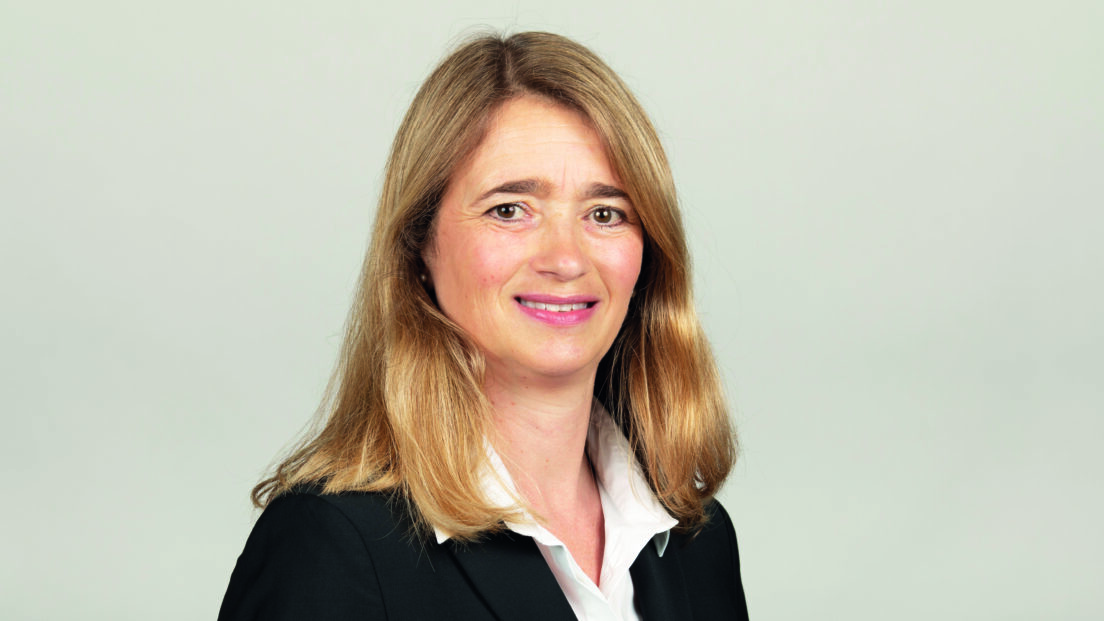“Sustainable and smart city with a high quality of life”

Bettina Furrer, Head of the Office for Urban Development of the City of Winterthur, talks in an interview about Winterthur's strengths and challenges, current priorities, housing and the city's plans for the future.
Ms Furrer, what is the task of urban development?
We deal with the four topics of economy, housing, smart city and social urban development. We contribute our topics to various development processes. In doing so, we rely on trend and potential analyses and data, among other things. We provide information, advice and support projects and services related to these core topics.
What tasks do you take on with regard to location development?
We deal with this topic holistically and proactively. Housing and the economy, for example, cannot be considered individually, they influence each other. Location development is a joint task.
Currently, we are primarily concerned with the business location, including the following two aspects: The first point is the profiling of workplace areas. To this end, we are pursuing the approach of innovation ecosystems and are developing the corresponding foundations. Here we still have some development work ahead of us. Secondly, the companies that are already here, but also other actors, should be able to bring in their concerns and interests and develop further. In this regard, we are in the process of setting up a so-called business service desk.
What are the concrete goals of Winterthur’s urban development?
Winterthur should be a sustainable and smart city with a high quality of life, characterised by respectful coexistence and good conditions for business. The population participates in social development, new technologies are promoted. Winterthur continues to develop its good reputation as a liveable city – not least thanks to a diverse range of housing for a wide variety of needs. In the future, however, we also want to position ourselves as a location for technology and innovation. The city should also see itself as a real laboratory (WinLab) for the promotion of innovations and use the competences gained from this. Another goal is data monitoring for our core topics. And we would like to promote Open Government Data.
What are the biggest challenges for Winterthur at the moment?
As everywhere, the big issues in Winterthur are the net zero target or digitalisation. And Winterthur is growing. We need more space for housing, jobs, schools, sports and other needs. At the same time, land is in short supply.
With the “Spatial Development Perspective Winterthur 2040”, the city shows where the greatest potential for densification lies and how it wants to use it: it is about areas with a variety of uses and about workplace areas. Investors and private landowners are showing great interest. This opens up opportunities for the business location, but also challenges us.
What are the most popular locations for companies?
That depends entirely on the needs of the companies. Depending on the needs of the company, the accessibility, the zoning, the development potential, the surroundings or the land and rental prices play a greater or lesser role. I would venture to say that demand is generally increasing in the direction of central and well-supplied locations. Of course, there are also companies that prefer a peripheral location because of land consumption or noise emissions. In general, it is important to preserve industrial and commercial zones for the future.
How doesWinterthur score as a location for companies?
Firstly, Winterthur is excellently connected: Zurich Airport can be reached in a few minutes, the train connections to Zurich and Eastern Switzerland are optimal. And with the planned Brüttener Tunnel and the expansion of the A1 motorway, transport access will be even better in the future. Secondly, we can score points with successful technology companies that are well equipped for the future. These include large, partly listed companies such as Rieter, Sulzer, Burckhardt Compression and Kistler, as well as a large number of innovative start-ups. The latter are specifically promoted, for example by Technopark Winterthur, the Home of Innovation and the Entrepreneur Club Winterthur. A third plus point is the Zurich University of Applied Sciences (ZHAW). Through its research and development, it ensures the transfer of knowledge, contributes to local innovation and, as a university, produces valuable specialists. In addition, the ETH and the University of Zurich are also not far away.
What makes Winterthur attractive as a place to live?
The already mentioned high quality of life and its own charm. The large number of gardens, an intact, historic old town and the wide range of cultural activities contribute to this. In my opinion, there is another, underestimated quality: From almost anywhere in the city, you can reach the countryside in about ten minutes. Last but not least, the moderate prices compared to nearby Zurich and the good transport connections to eastern Switzerland make Winterthur a very attractive place to live.
What is the situation with free housing in Winterthur?
Free housing has been rare in growing Winterthur for some time: the vacancy rate last year was 0.37 per cent, which corresponds to just 212 flats. There is a lot of building going on, now and in the near future, as far as we can estimate today. We are concerned with the topic of housing, but we are not alone in this: affordable housing is generally a big issue in Swiss cities.
Personal details
Bettina Furrer has been Head of the Office for Urban Development of the City of Winterthur since December 2020. She studied environmental sciences at ETH Zurich and received her doctorate in 2010. From 2004 to 2018 she worked for the ZHAW School of Engineering, first as a lecturer and later as a professor and head of the Institute for Sustainable Development. Bettina Furrer grew up in Winterthur and still lives in the city with her family.